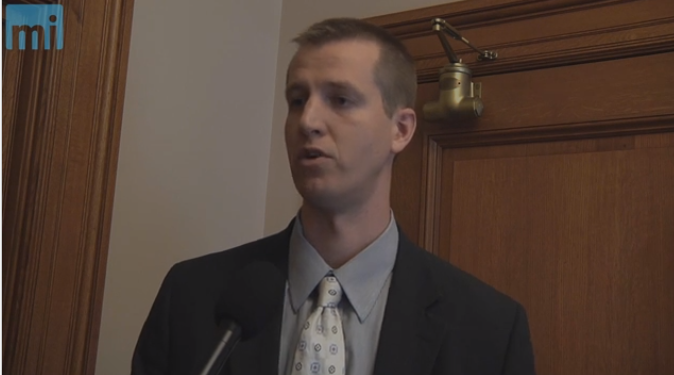
MacIver News Service | September 24, 2013
[Milwaukee, Wisc…] Rep. Dale Kooyenga (R-Brookfield) wrote a letter to Milwaukee Journal Sentinel Politifact reporter Dave Umhoefer challenging his “mostly false” rating regarding the use of Generally Accepted Accounting Principles (GAAP) in Wisconsin.The full letter from Kooyenga is below:
Mr. Umhoefer,
I was extremely disappointed with your rating of “Mostly False” in today’s Journal Sentinel regarding my statements pertaining to Generally Accepted Accounting Principles (GAAP) in Wisconsin. I know this is an area involving technical accounting so I was perplexed why you did not talk to a single Certified Public Accountant besides myself. Posing as an authoritative truth checker on such a complicated accounting subject without talking to another CPA is perplexing. What source disagreed with my comments and on what grounds? Typically you site those that disagree with an assertion and why.
There were several statements in your article that testified to your lack of knowledge regarding GAAP. For example, “Lawmakers and the governor would have to cut $2 billion to $3 billion more from the budget to fully balance under the more stringent GAAP standards.” That statement is not true, the GAAP balance represents the accumulation of disallowed accounting practices in prior budgets. This is why in the business world, companies that have done GAAP wrong previously “restate” prior period earnings as opposed to recognizing the correction in the current period. Your parent company employs CPAs with the experience to tell you how this works.
If I would have said that we have used GAAP accounting to pass a balanced budget the last two years that would have been one statement, but I did not say that. I stated that we (the CPA’s) have used GAAP accounting the last 2 years (since we were in office). Saying you’re using GAAP accounting does not mean you have a balanced budget – it simply means you are defining an authoritative body of rules to communicate what type of accounting standards you are using. Saying what accounting standard you are using is like saying what type of eye glasses you are wearing to measure the financial performance of an entity. Even if the GAAP deficit increased, I would still not be in error saying “we have been using GAAP accounting the last two years,” because such a statement does not say anything about having a GAAP profit, loss or breakeven – it just states what standard your using.
In addition, I shared with you previously that Wisconsin GAAP deficit actually has decreased from $2.9B (7/1/2011) to $2.2B (6/30/2012). The balance is also expected to decrease further as of 6/30/2013 which you corroborated in your article. It is impossible to decrease an accumulated GAAP deficit while realizing GAAP surpluses. The GAAP surplus means Gov. Walker and the Republicans have been fixing the mistakes of the past (i.e. Patient Compensation Fund).
I have also attached the previous communication I provided for the benefit of those copied.
When we were on the phone (which you reported as September 19, actually it was September 20) you stated you were leaning towards a true rating. I am interested to hear what needs to be clarified since our last conversation.
I have spoken to dozens of CPAs about your rating – they all agree your rating is simply wrong. I would be happy to arrange a meeting with several CPAs from academia and the private sector to resolve the misinformation you printed in today’s paper. Ironically, your rating is simply wrong and I hope you are willing to revisit this matter.
Respectfully,
Dale Kooyenga
Links to Audited Comprehensive Annual Financial Reports:
6/30/2012 GAAP Balance: (Page 165)